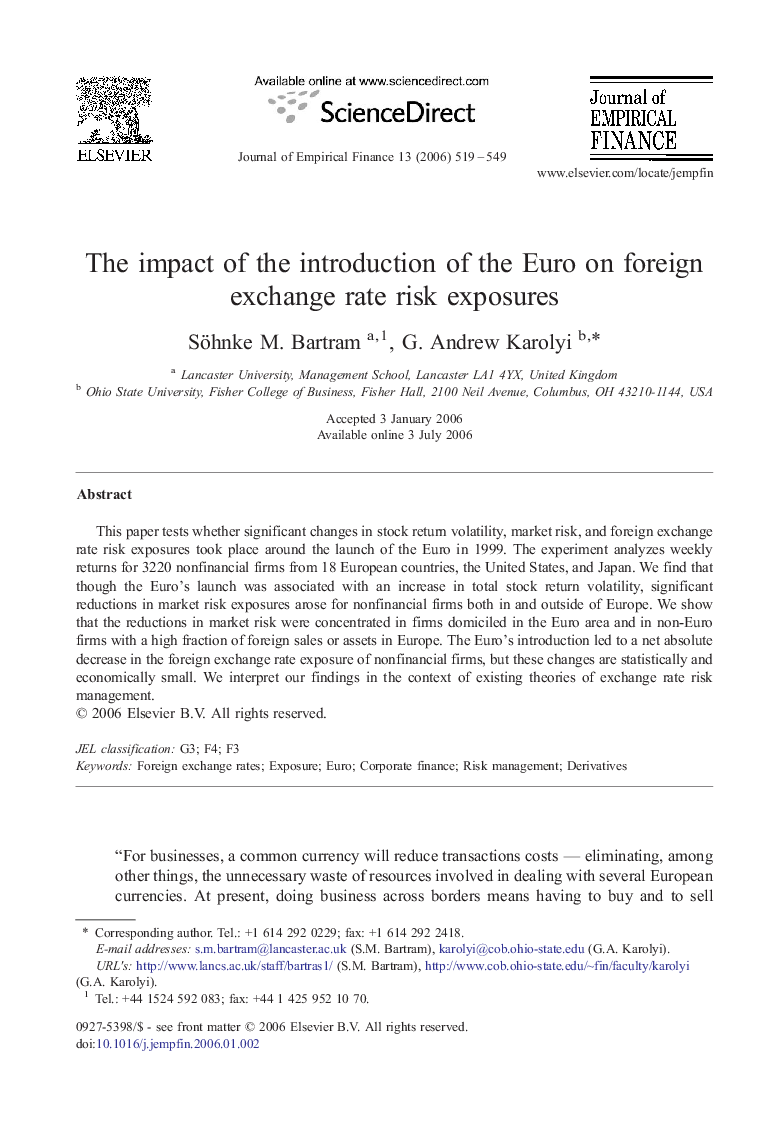| Article ID | Journal | Published Year | Pages | File Type |
|---|---|---|---|---|
| 958380 | Journal of Empirical Finance | 2006 | 31 Pages |
This paper tests whether significant changes in stock return volatility, market risk, and foreign exchange rate risk exposures took place around the launch of the Euro in 1999. The experiment analyzes weekly returns for 3220 nonfinancial firms from 18 European countries, the United States, and Japan. We find that though the Euro's launch was associated with an increase in total stock return volatility, significant reductions in market risk exposures arose for nonfinancial firms both in and outside of Europe. We show that the reductions in market risk were concentrated in firms domiciled in the Euro area and in non-Euro firms with a high fraction of foreign sales or assets in Europe. The Euro's introduction led to a net absolute decrease in the foreign exchange rate exposure of nonfinancial firms, but these changes are statistically and economically small. We interpret our findings in the context of existing theories of exchange rate risk management.
